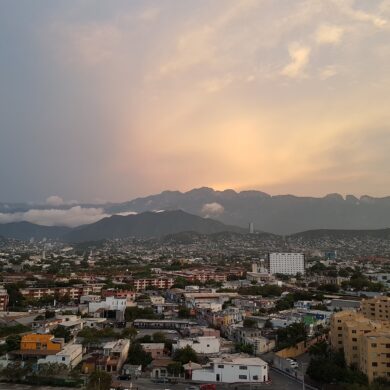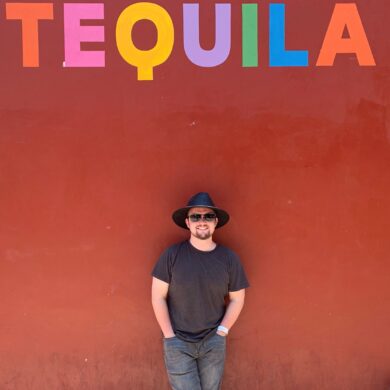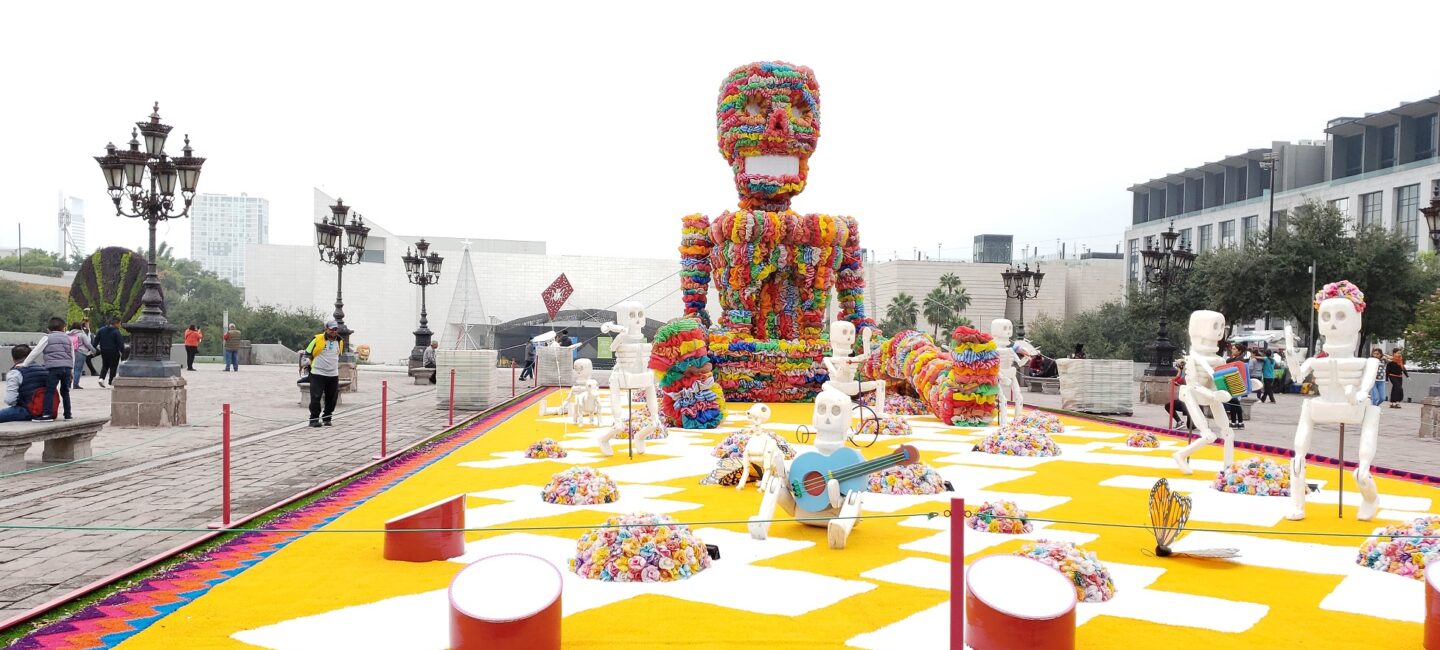My Education in Español
For several weeks now, I’ve been spending lunchbreaks and weekends struggling to describe how I look, what foods I like, and the activities shown in clipart images. This is because I am studying for a Spanish GCSE.
Back in 2015, I was lying on my couch swiping away at Tinder when a I matched with a woman named Cesia. The next day we met at midday at the Starbucks outside Birmingham New Street station for a coffee and were still talking at 10pm. We’ve now been married for nearly six years and our daughter Anna is rapidly approaching her first birthday.
Cesia is from Mexico and was in the UK for her master’s degree. After she graduated, I proposed – she accepted – and we moved to Monterrey in the north of Mexico, intending to stay for about a year.

In the end we lived there for more than three years and, during that time, I listened to Spanish audio courses and I practised with Cesia. I practised with every shopkeeper and security guard and Uber driver. I practised with receptionists as I found my way to the Business English classes I was teaching in high rise office blocks and industrial plants dotted around the city. I got very good at asking people to speak slowly and I learned a lot – mainly, that most people don’t like to speak slowly.
Since returning to the UK, I’ve realised that accurate concepts of Cesia’s culture barely exist here. She is “other” on most official forms, and so too is Anna. Being so far from home has made her miss and appreciate elements of Mexican life that she had previously taken for granted, like mariachi music or Day of the Dead; elements of Mexican culture often laughed at by those unfamiliar with them and their meanings. Mexican Independence Day (16th September, not cinco de mayo as is often thought) comes and goes unacknowledged by her new home country.
The Live Free Fund is making it possible for me to continue my Spanish studies in a more structured way and, by doing so, I’m hoping to establish a better foundation that I can keep building on for the rest of my life.
Eventually, I want to be able to celebrate Cesia’s culture in her native language. I want to be able to read the Latin American authors she loves in the same versions she did in Mexico. I want to be able to make Spanish part of my daily life so that it can be part of Anna’s. I want Anna to have a better chance at a relationship with her grandparents and the great aunts, uncles and cousins that she’ll rarely see in person.

I didn’t expect to be chosen for the fund, partly as I never knew Zara, although WPR was always clear that knowing her wasn’t a requirement. Within minutes of this year’s recipients being announced, emails came in from colleagues who had worked alongside her and become close friends. They wrote about Zara and how supportive of the recipients’ goals she would have been, how generous she always was, how she loved languages, and how she’d always had a deep love for family.
So far, I’ve submitted one assignment and received a good mark which gives me confidence that I can actually complete this and, with a bit more hard work, I could soon be having conversations in Spanish that are more than just vocabulary practice. Thanks to WPR and the Live Free Fund, I’m able to take a big step in the right direction.
And hopefully Anna won’t mind Dad jokes in two languages.
About WPR’s Live Free Fund
The Live Free Fund was established in 2021 in memory of a much loved colleague Zara Free.
Inspired by Zara’s passion for living life to the full, the Live Free Fund exists to make life-enriching experiences possible for members of the WPR team, creating opportunities for them to to broaden their horizons and grow as individuals.
Whether gaining a new skill or qualification, or making a once-in-a-lifetime trip across the world, the Live Free Fund encourages people to embrace things outside their comfort zones, keeping Zara’s spirit of curiosity and adventure alive at WPR.

